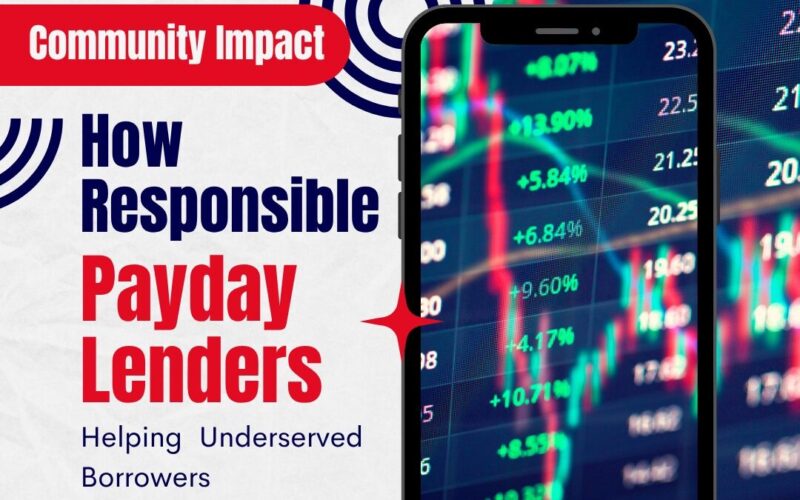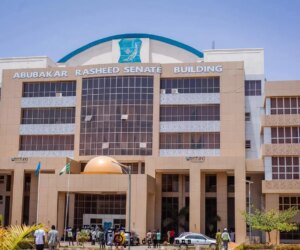When 45 million people in the United States with bad or no credit scores are denied access to emergency finances by traditional banks, where do these individuals turn for emergency funding?
In Detroit’s East Side, Maria Rodriguez was confronted with this predicament when her automobile broke down a month ago. The single mother, who had a credit score of 520 and two children who were dependent on her, required $800 right away in order to repair the only mode of transportation she used to carry herself to work. Traditional financial institutions rejected her application in a matter of minutes.
However, she was able to keep her work and obtain the income she required within twenty-four hours by utilizing a responsible payday lending firm.
Maria’s situation is representative of millions of people in the United States who live in what economists call “banking deserts.” These are communities in which traditional financial institutions have abandoned ship, leaving residents with few options when they are faced with a challenging financial situation.
While payday lending has come under fire, a new generation of responsible lenders are introducing fair policies that actually benefit neglected areas rather than exploit them.
The Changing Face of Short-Term Lending
Payday lending has altered significantly in recent years. In 2023, the CFPB reported that well-capitalized lenders with APR limitations under 36% and flexible repayment terms had 78% customer satisfaction, up from 41% for traditional high-cost loans.
The vanguard of this movement includes companies such as BestUSAPayday’s eLoanWarehouse, LendUp and Possible Finance, with loan amounts ranging from $100 to $5,000 -repayment periods extending up to 12 months rather than the traditional two-week deadline.
Jonathan Reed, Founder & CEO at BestUSAPayday.comcommented: “We’re not just providing loans – as we are literally building the bridges to financial stability. We saw almost a 35% drop in defaults when we moved away from two-week to twelve-month repayment and no prepayment penalties. There are measurements of a community-level impact of this shift to responsible lending practices.”
According to a 2024 study by the Urban Institute, small business survival rates increased by 23% in areas where responsible payday lenders prevailed during economic crises when traditional banks were no longer serving local entrepreneurs in need of emergency capital.
Filling the Gap Where Banks Fear to Tread
Over the past few decades, mainstream lenders have been systematically exiting those neighborhoods, abandoning low-income Americans. According to data from the Federal Reserve, over 6,000 branches have closed their doors in rural and urban low-income communities since 2010.
This gap is being filled by responsible payday lenders leveraging technology to extend credit to responsible borrowers who would otherwise be left behind with FICO. Destroying this system, a nonprofit coalition of over dozens of groups has come together to promote fewer high-cost options for short-term credit.
Alternative data, such as your employment history, education, and bill payment patterns, is used by companies like OppLoans and Rise Credit to determine whether a borrower is a reasonable risk. This strategy has expanded opportunities for immigrants and young adults, along with people emerging from medical bankruptcies who would otherwise remain frozen out of the credit system.
Building Financial Literacy and Long-Term Success
The most progressive payday lenders focus on borrower education and financial wellness as well as lending. Earnin, pioneered the earned wage access concept, letting workers access their income without interest. Dave and MoneyLion offer small-dollar lending, budgeting, savings, and credit monitoring.
These thorough methods produce amazing outcomes. The Financial Health Network found that consumers who utilize lenders with financial education tools improve their credit ratings by 45 points in 12 months. Additionally, 67% of these borrowers graduate from payday lending by qualifying for regular credit products.
The Social Development Commission and responsible lenders in Milwaukee created a financial empowerment program that has helped over 3,000 residents escape debt since 2022. A small emergency loan and mandated financial counseling result in an 82% repayment rate.
The Economic Ripple Effect
The economic benefits extend beyond individual borrowers when responsible payday lenders operate in disadvantaged communities. According to a 2024 economic impact study by the Brookings Institution, responsibly lent dollars in low-income neighborhoods have been shown to create $2.30 in local economic activity for every dollar planted.
This multiplier effect occurs when borrowers use the money for payroll, small business expenses, or other costly expenses such as overdraft fees or utility shutoff fees.
Lending has served as an economic lifeline in Native American communities where traditional banks have not penetrated more than 15 percent of available credit. According to the Native American Financial Services Association, responsible lenders have loaned more than $15 billion and reinvested profits, on reservations, into healthcare, education and infrastructure.
Looking Forward: The Path to Financial Inclusion
The path forward for responsible payday lending is through continued innovation and proper regulation. Other states, such as Colorado and Ohio, have seen great success with reforms that limit interest rates without putting lenders out of business or destroying access to credit. They have cut defaults by 40% and balanced the legitimate lending context.
Technology promises even greater accessibility. The risk assessment is done based on the intelligent interpretation of machine learning and artificial intelligence, while the blockchain can help bring down the costs of transactions and increase transparency.
The mobile-first platform now serves 73% of installment borrowers, reaching those who are unbanked and lack easy access to physical financial services locations.
Responsible payday lenders are not a perfect solution but it is a necessary option as America struggles with growing wealth inequality and ongoing financial exclusion.
These are not charitable organisations: these are businesses targeting a market neglected by traditional finance. But when they are used properly, with fair terms and honest intentions for the borrower’s success, they are the economic engine for communities that are suffocating under individualistic economies.










